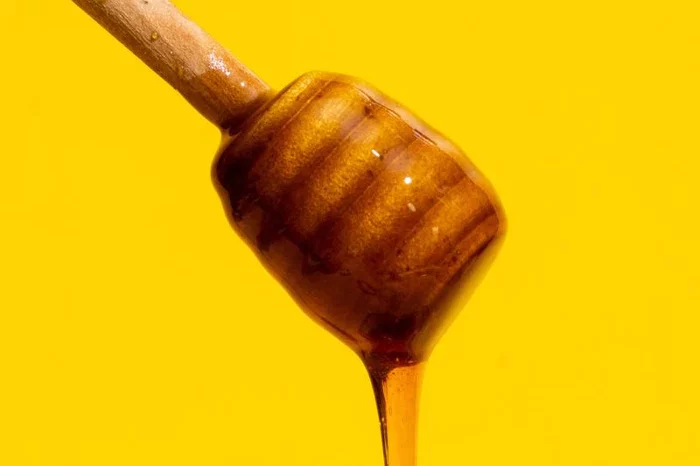Diabetes is a chronic condition that affects millions of people worldwide, characterized by high blood sugar levels due to the body’s inability to produce enough insulin or effectively use the insulin it produces. Managing blood sugar levels is crucial for diabetics, and diet plays a pivotal role in this management. One of the common questions that arise in this context is whether diabetics can consume raw honey. Honey, a natural sweetener, is often lauded for its health benefits, but its high sugar content raises concerns for those managing diabetes. This article delves into the complexities of consuming raw honey for diabetics, exploring its nutritional profile, potential benefits, and risks.
Understanding Diabetes and Blood Sugar Management
Before addressing whether diabetics can consume raw honey, it is essential to understand the basics of diabetes and how blood sugar levels are managed. Diabetes primarily comes in three forms: Type 1, Type 2, and gestational diabetes.
Type 1 Diabetes: An autoimmune condition where the body attacks insulin-producing cells in the pancreas.
Type 2 Diabetes: A metabolic disorder where the body becomes resistant to insulin or doesn’t produce enough insulin.
Gestational Diabetes: Occurs during pregnancy and usually resolves after childbirth, but it increases the risk of developing Type 2 diabetes later.
Blood sugar management involves monitoring blood glucose levels, maintaining a balanced diet, engaging in regular physical activity, and, in some cases, taking medication or insulin therapy. The goal is to keep blood sugar levels within a target range to prevent complications such as cardiovascular disease, nerve damage, and kidney problems.
Nutritional Profile of Raw Honey
Honey is a natural sweetener produced by bees from the nectar of flowers. It is composed mainly of carbohydrates, primarily fructose and glucose, along with water. Raw honey, unlike processed honey, is unpasteurized and unfiltered, preserving its natural enzymes, vitamins, minerals, and antioxidants. The nutritional components of raw honey include:
Carbohydrates: Around 82% of honey is sugar, with fructose making up about 40% and glucose about 30%. The remaining carbohydrates are maltose, sucrose, and other sugars.
Water: Approximately 17% of honey is water.
Vitamins and Minerals: Raw honey contains trace amounts of vitamins such as B6, thiamine, niacin, riboflavin, pantothenic acid, and minerals like calcium, copper, iron, magnesium, manganese, phosphorus, potassium, sodium, and zinc.
Antioxidants: Raw honey is rich in phenolic compounds and flavonoids, which have antioxidant properties.
Glycemic Index of Honey
The glycemic index (GI) is a measure of how quickly a carbohydrate-containing food raises blood glucose levels. Foods with a high GI are rapidly digested and absorbed, causing a quick spike in blood sugar levels, while those with a low GI are digested more slowly, leading to a gradual rise in blood sugar. The GI of honey varies but is generally classified as moderate, with a value ranging between 45 and 64 depending on its floral source and processing.
Potential Benefits of Raw Honey for Diabetics
Despite its high sugar content, raw honey has several properties that might offer benefits to diabetics when consumed in moderation and as part of a well-managed diet. These potential benefits include:
Antioxidant Properties
Raw honey is rich in antioxidants, which can help reduce oxidative stress and inflammation in the body. Oxidative stress is linked to the development and progression of diabetes complications. Antioxidants in honey, such as flavonoids and phenolic acids, can help neutralize free radicals, potentially lowering the risk of complications like cardiovascular disease.
Antibacterial and Anti-inflammatory Effects
Raw honey has natural antibacterial and anti-inflammatory properties due to the presence of hydrogen peroxide, flavonoids, and phenolic acids. These properties can aid in wound healing, which is particularly beneficial for diabetics who are prone to infections and slow-healing wounds.
Potential Impact on Glycemic Control
Some studies suggest that honey might have a more favorable impact on blood sugar levels compared to other sugars. Honey has a lower GI than sucrose (table sugar), meaning it might cause a slower and lower rise in blood sugar levels. Additionally, the presence of fructose in honey can enhance glucose metabolism and insulin sensitivity.
Risks and Considerations for Diabetics
While raw honey has potential benefits, it also poses risks that diabetics need to consider. The high carbohydrate content can significantly impact blood sugar levels if not consumed carefully. Here are some key considerations:
High Sugar Content
Raw honey is high in sugar and calories, which can lead to spikes in blood sugar levels. For diabetics, this can be particularly problematic as it may interfere with blood glucose management. It’s crucial for diabetics to monitor their carbohydrate intake, and honey should be counted as part of the daily carbohydrate allowance.
Risk of Botulism
Raw honey can contain spores of the bacterium Clostridium botulinum, which can cause botulism, a rare but serious illness. While botulism is more of a risk for infants and individuals with compromised immune systems, diabetics with weakened immune responses should be cautious.
Impact on Weight Management
Maintaining a healthy weight is important for diabetics, especially those with Type 2 diabetes. The high-calorie content of honey can contribute to weight gain if consumed in large quantities, which can exacerbate insulin resistance and make blood sugar management more challenging.
Scientific Studies on Honey and Diabetes
Research on the effects of honey on diabetes management provides mixed results. Some studies highlight potential benefits, while others caution against its use due to its high sugar content. Here are a few notable studies:
Study 1: Honey and Glycemic Control
A study published in the Journal of Medicinal Food examined the effects of honey on glycemic control in individuals with diabetes. The study found that honey consumption led to a lower glycemic response compared to glucose or sucrose. However, the researchers emphasized the need for caution and recommended that honey should be consumed in moderation.
Study 2: Honey and Insulin Sensitivity
Another study, published in the International Journal of Food Sciences and Nutrition, investigated the impact of honey on insulin sensitivity and lipid profiles in diabetic patients. The results indicated that honey improved insulin sensitivity and lipid profiles, suggesting potential benefits for metabolic health. However, the study also noted that more research is needed to fully understand these effects.
Study 3: Antioxidant Effects of Honey
Research published in the Asian Pacific Journal of Tropical Biomedicine highlighted the antioxidant properties of honey and their potential role in reducing oxidative stress and inflammation in diabetics. The study suggested that the antioxidants in honey could help mitigate some complications associated with diabetes.
Practical Guidelines for Diabetics Considering Raw Honey
For diabetics who wish to include raw honey in their diet, it is essential to do so with caution and under the guidance of a healthcare professional. Here are some practical guidelines:
Monitor Blood Sugar Levels
Diabetics should closely monitor their blood sugar levels when introducing raw honey into their diet. Regular monitoring can help identify any adverse effects and ensure that blood sugar levels remain within the target range.
Use in Moderation
Moderation is key when consuming raw honey. It should not be used as a primary sweetener but rather as an occasional treat. Diabetics should account for the carbohydrate content of honey in their daily meal plan to avoid excessive sugar intake.
Choose Raw, Unprocessed Honey
If opting for honey, choose raw, unprocessed varieties. These retain more of the natural enzymes, vitamins, and antioxidants that can offer health benefits. Avoid highly processed or pasteurized honey, which can lose many of its beneficial properties.
Combine with Low-GI Foods
Consuming raw honey with low-GI foods can help mitigate its impact on blood sugar levels. Pairing honey with high-fiber foods, such as whole grains, fruits, and vegetables, can slow down its absorption and reduce glycemic response.
Consult a Healthcare Professional
Before making any dietary changes, diabetics should consult with their healthcare provider or a registered dietitian. Professional guidance can help tailor dietary choices to individual health needs and ensure that blood sugar management remains effective.
Conclusion
The question of whether diabetics can eat raw honey is complex and multifaceted. While raw honey offers potential benefits due to its antioxidant properties and lower glycemic index compared to some other sweeteners, its high sugar content poses significant risks. Diabetics can potentially include raw honey in their diet, but this should be done with caution, moderation, and under professional guidance. Ultimately, maintaining effective blood sugar control and preventing complications are the top priorities in diabetes management, and dietary choices should align with these goals.
Related topics:
The Impact of the Keto Diet on Diabetes Management



























